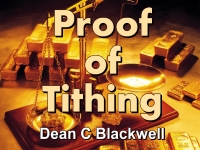
I'd like to ask a question today and then try to answer it by an example, how do we arrive at truth? One thing I learned from going to Big Sandy to teach Comparative Religion, I thought I was going to just exhaustively look into the origins of certain words in the scriptures and I was going to nail down without any possible lack of definiteness certain truths, I was going to nail down the word souls, I was going to nail down certain other words that were going to have to mean one thing and clearly always every time one thing. Well to my surprise, in a lot of areas God has written the Bible where it can be interpreted, where it can be altered or where you can use human reasoning and you can try to make it say several different things...
Transcript of this Sermon coming.






